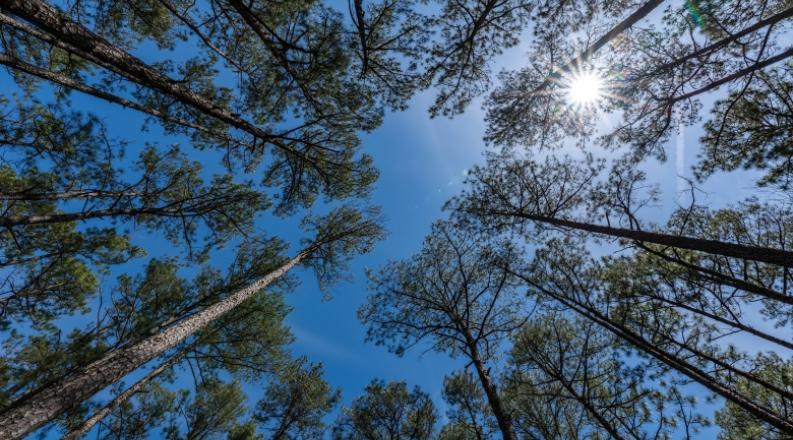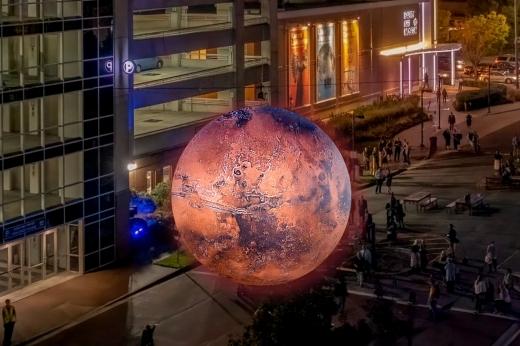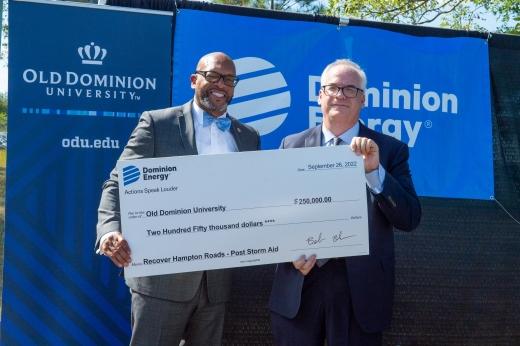By Philip Walzer
"Here's the glistening. Look at that one sparkling up there! It's so happy, it can't hold back."
Neither can Lytton John Musselman.
The professor of biology turns effusive whenever he encounters the towering longleaf pine trees on Old Dominion University's 319-acre Blackwater Ecological Preserve in Zuni. Musselman negotiated the transfer of the land from the Union Camp Corp. paper company in 1985, with the aid of The Nature Conservancy.
The preserve houses the northernmost community of longleafs on the East Coast - more than 2,000.
Other pines dot the landscape - loblolly, pond and shortleaf - standing on sand 30 feet deep. But the longleafs (Pinus palustris, to be technical about it) are the most senior (up to 400 years old) and stand the tallest (over 100 feet). They also have the largest cones (some nearly a foot long), biggest seeds and longest needles of any Eastern pine.
And when the sun hits them, those needles nearly shimmer.
Musselman, the Mary Payne Hogan Distinguished Professor of Botany, is not the first biologist attracted to Blackwater. Harvard's Merritt Fernald wrote about it in the 1930s. But Musselman, who manages the preserve, is surely the most passionate.
"Take a look up!" he directed nearly 30 undergraduates, grad students and alumni visiting earlier this year. "Look at the glistening. What a scene!"
Musselman, who recently began his 50th year at ODU, ensures that visitors have a multisensory experience, sometimes offering huckleberries and blueberries to taste, as well as bites of sassafras and wintergreen leaves (though he warns those allergic to aspirin to steer clear of the latter).
Musselman's research interests include plants of the Bible. His latest book is "Solomon Describes Plants."
"If the wisest man who ever lived was a botanist," he says, "I'm in good company."
He's also passionate about history, and a walk through Blackwater with Musselman and his students includes a few lessons. The longleaf, he said, "is the tree that built Tidewater, but people in Norfolk don't know about it."
From the 1600s through the mid-1800s, the British and Americans extracted the sap from longleafs to make tar and turpentine. Those so-called naval stores provided the lifeblood for wooden ships, lubricating and preserving the rigging and other parts. The work, visitors are told, often relied on slave labor.
Musselman always leaves Blackwater exuberant and grateful. "I get to work with plants and students," he said. "What could be better?"
For more information about the Blackwater Ecological Preserve or to visit, email lmusselm@odu.edu
See more of the preserve at www.odu.edu/monarchmag
To make a gift in honor of Lytton John Musselman's many years of service to ODU, contact the Office of Development at 757-683-3090.
Related News Stories
45th Annual Literary Festival Focuses on ‘Sustaining Community’ Through Writing
Tying into the University’s fall 2022 semester theme of “Sustainability,” the festival will feature a series of in-person and virtual events free and open to the public from Oct. 2 to 6. (More)
Barry Art Museum’s ‘Mars Fest’ Brings a Red Glow to Campus
ODU’s second public arts festival will feature programmed performances, activities and a large-scale sculpture of the planet by British artist Luke Jerram. (More)
ODU’s Storm Recovery Project Gets Boost from Dominion Energy
Dominion Energy’s $250,000 gift to ODU’s Recover Hampton Roads will help residents, professionals and diverse communities. (More)






